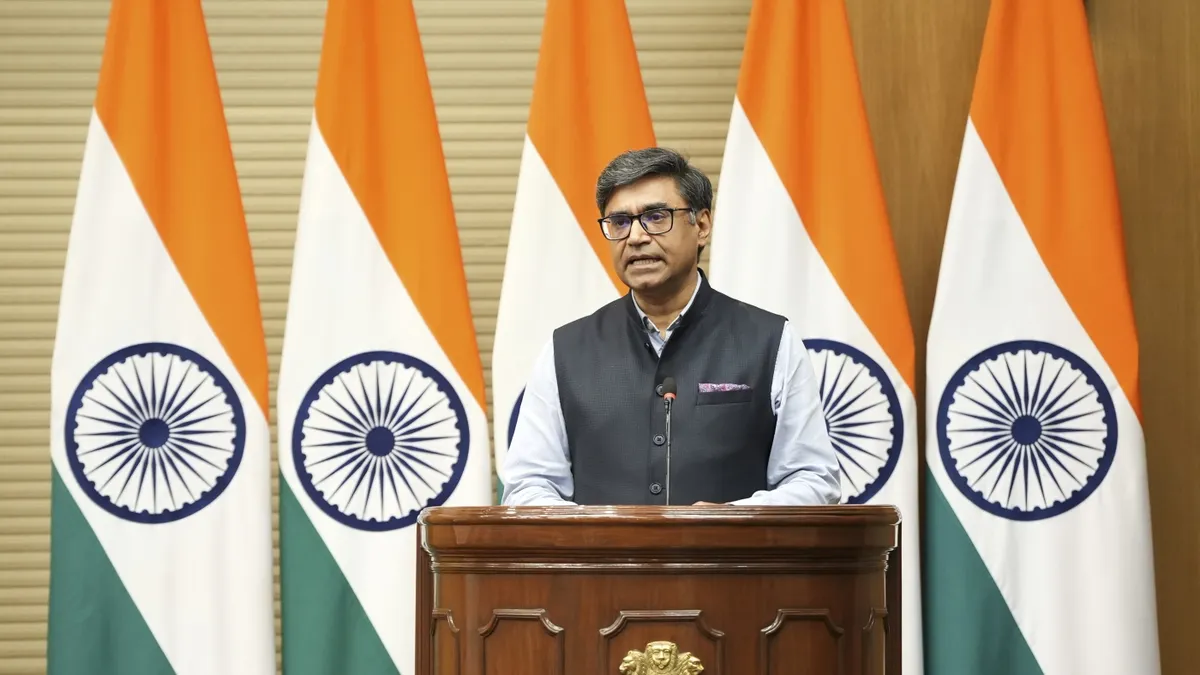
On Saturday, India and Pakistan reached a significant agreement for a ceasefire following intense discussions led by the U.S.. This breakthrough aimed to halt the most severe military confrontation between the two nuclear-armed nations in decades. However, just hours after the announcement, both countries accused each other of violating the ceasefire terms.
The ceasefire was anticipated to swiftly end weeks of escalating military clashes, which included missile and drone strikes. These tensions were exacerbated following a tragic attack last month that resulted in the deaths of tourists, an incident that India attributes to Pakistan, a claim that Islamabad vehemently denies. Despite the ceasefire agreement, residents in major cities of Indian-controlled Kashmir reported multiple explosions shortly after the truce was declared.
During a press conference in New Delhi, Indian Foreign Secretary Vikram Misri stated that there had been multiple violations of the ceasefire agreement, specifically accusing Pakistan of breaching the terms. He urged Pakistan to take immediate and responsible actions to address these violations. Misri mentioned that the Indian army was responding to what he termed a border intrusion.
In response, Pakistan's Foreign Ministry accused Indian forces of initiating the ceasefire violations. They affirmed their commitment to the ceasefire, emphasizing the importance of addressing any issues through effective communication between the two nations. According to the ministry, Pakistan's military was exercising responsibility and restraint in handling the situation.
The initial announcement of the ceasefire came from U.S. President Donald Trump, who expressed his congratulations on social media, praising both nations for their "common sense" and "great intelligence." Pakistani Prime Minister Shehbaz Sharif stated that his country accepted the ceasefire in the interest of regional peace, expressing hope that all outstanding issues, particularly the long-standing dispute over Kashmir, would be resolved through peaceful dialogue.
Despite the agreement, explosions were reported in Srinagar and Jammu within hours, leading to power outages in both cities. While there were no immediate reports of casualties, the situation raised concerns among local officials. Omar Abdullah, the region's top elected official, took to social media to voice his frustration, questioning the effectiveness of the ceasefire given the ongoing violence.
The conflict between India and Pakistan is deeply rooted, with both nations engaging in wars and skirmishes since their independence from British rule in 1947. The latest ceasefire followed a series of cross-border missile strikes, where India claimed to have targeted Pakistani air bases after Islamabad allegedly launched high-speed missiles at military and civilian targets in Punjab.
U.S. Secretary of State Marco Rubio indicated that he and Vice President JD Vance had been in discussions with high-ranking officials from both nations over the past 48 hours. Key leaders, including Indian Prime Minister Narendra Modi and Pakistani Chief of Army Staff Asim Munir, were involved in these talks aimed at establishing a framework for broader negotiations at a neutral site.
The sentiment in Pakistan shifted from initial celebrations of military retaliation to relief over the ceasefire, with citizens expressing hope for lasting peace. One resident, Zubaida Bibi, remarked on the joy of returning calm, stating that "war brings nothing but suffering."
As the situation continues to develop, the fragility of the ceasefire illustrates the complexities of India-Pakistan relations. The severe tensions following the attack on April 22, which resulted in the deaths of 26 civilians, primarily Indian Hindu tourists, underscore the urgent need for dialogue. The recent military actions and subsequent ceasefire highlight the ongoing struggle for peace in a region marked by conflict and historical grievances.